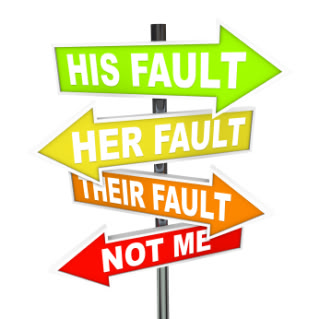It’s My Decision And I Stand By It!

Leaders are faced with making decisions every day that have consequences impacting themselves, their companies, and those they lead. How leaders make decisions and how they deal with the consequences of those decisions has a direct impact on their ability to engage and inspire others. Some of those decisions end up with very positive outcomes. But often, even with the best intentions and best intelligence available, decisions are made that end up with less than desirable results. Effective leaders understand that there is no decision that is 100% risk free. There is always one more piece of information that could be reviewed before making a decision. There are those who make impulsive decisions with little or no input and there are those who analyze information to death and do not make decisions in a timely manner. Effective leaders find the balance between making a quick decision and considering intelligence and input before making that decision.
But even when decisions are made with calculated risks, sometimes they don’t turn out well. Unexpected external factors influence the outcomes. There is little a decision maker can do to predict a natural disaster or an unexpected action taken by a competitor or some other event that could not be anticipated. So what do effective leaders do when they make a decision that does not turn out well?
I’ll start by telling you what they don’t do! They don’t blame others or makes excuses for a bad decision. With all of the decisions made on a daily basis, it’s highly unlikely that every one will have a positive outcome. Effective leaders take responsibility for the decisions they make and accept the related consequences. One of the key attributes of effective leadership is authenticity and integrity. When employees see a leader who is transparent about both good and bad decisions and accountable for the outcomes, there is a high level of respect, which leads to higher loyalty and engagement.
Now when I say that we should take the position that it was “my decision and I stand by it”, I’m not suggesting an air of arrogance or defensiveness. When it’s obvious that the outcome was not positive, it’s a losing battle to try to defend your decision. What I am suggesting is an attitude of responsibility and accountability. “I made the decision and I stand by it”. By that, I mean that I accept the consequences of the decisions I make, whether good or bad. The lack of defensiveness and excuses and the power of accountability and responsibility inspire others, notwithstanding the fact that some decisions do not turn out well.
When I was VP and GM of KitchenAid Portable Appliances, we were assessing the possibility of opening up our distribution to warehouse clubs, although historically we only sold through specialty retailers. Despite our best efforts to explain the strategy to our legacy customers, one of our key accounts told us that if we sold to the warehouse clubs, we could remove our products from their stores immediately. After considering the facts and the consequences, we made the decision and decided as a team to live with the outcome. The result is that we ended up with a highly engaged and loyal group of employees who were committed to supporting the decision and working through the consequences. Although that decision did in fact lead to significant growth, it could have just as easily resulted in a loss of sales. But after making the decision and accepting responsibility when that customer did in fact pull our product from their shelves, we continued to expand distribution and grow both our sales and our internal brand with engaged and inspired employees.
So what do effective leaders do when decisions do not turn out well? They accept responsibility and consequences and don’t blame someone or something else for the failure. But they also do something else. They learn from their bad decisions and try not to make the same mistakes twice. “It’s my decision and I stand by it”! Leaders make lots of decisions on a daily basis, some good and some bad. But those who accept the responsibility for decisions they make will inspire others and create a culture of high engagement, founded in authenticity and accountability.
